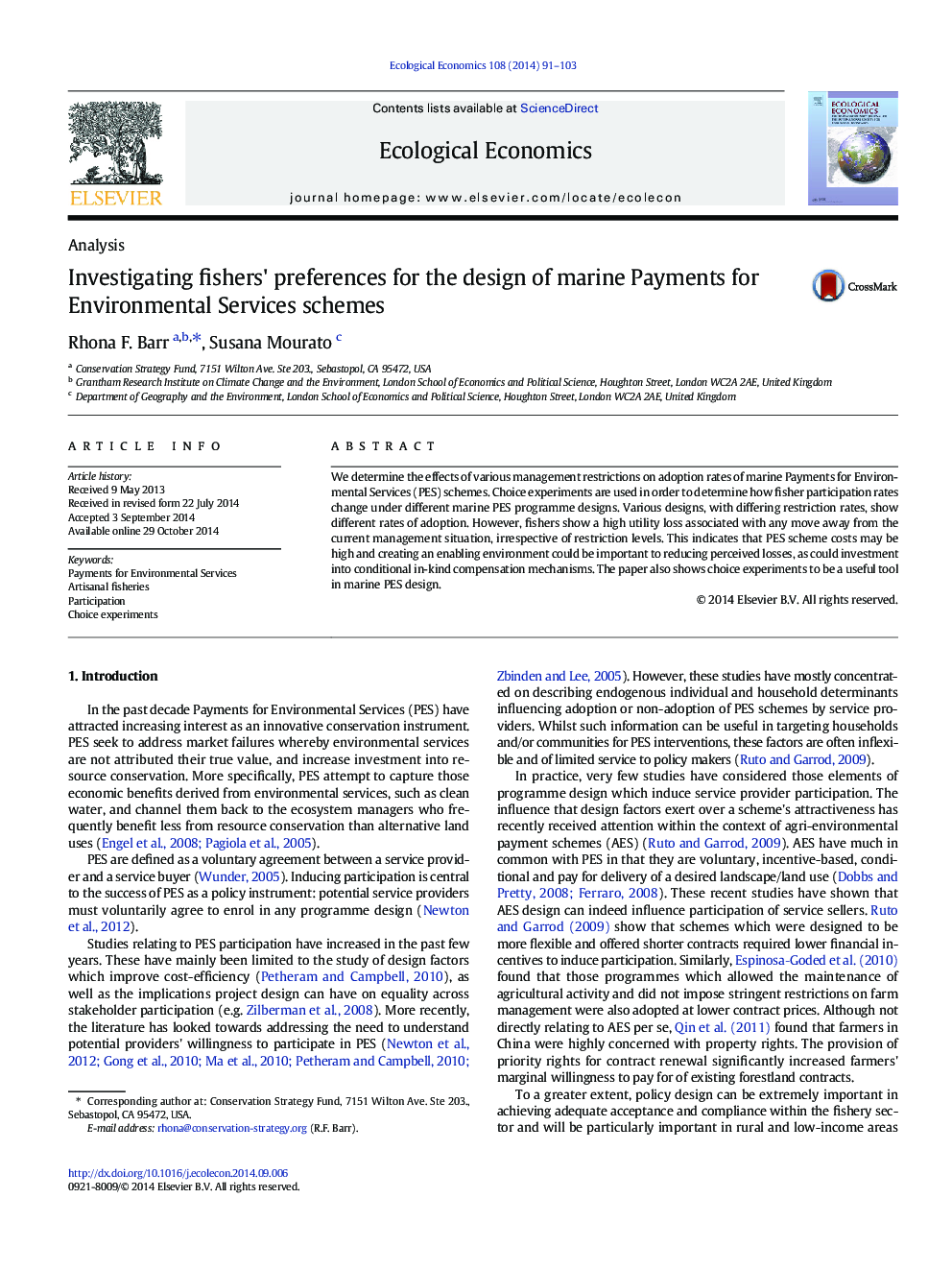| کد مقاله | کد نشریه | سال انتشار | مقاله انگلیسی | نسخه تمام متن |
|---|---|---|---|---|
| 5049577 | 1476371 | 2014 | 13 صفحه PDF | دانلود رایگان |
- We investigate Tanzanian fisher's preferences for marine PES scheme design.
- Choice experiments analyse utility loss associated with various restrictions.
- PES programmes were associated with a high utility loss by fishers.
- The greatest utility loss is associated with any move away from the status quo.
- In-kind incentives, building trust and supporting transition can reduce PES costs.
We determine the effects of various management restrictions on adoption rates of marine Payments for Environmental Services (PES) schemes. Choice experiments are used in order to determine how fisher participation rates change under different marine PES programme designs. Various designs, with differing restriction rates, show different rates of adoption. However, fishers show a high utility loss associated with any move away from the current management situation, irrespective of restriction levels. This indicates that PES scheme costs may be high and creating an enabling environment could be important to reducing perceived losses, as could investment into conditional in-kind compensation mechanisms. The paper also shows choice experiments to be a useful tool in marine PES design.
Journal: Ecological Economics - Volume 108, December 2014, Pages 91-103
